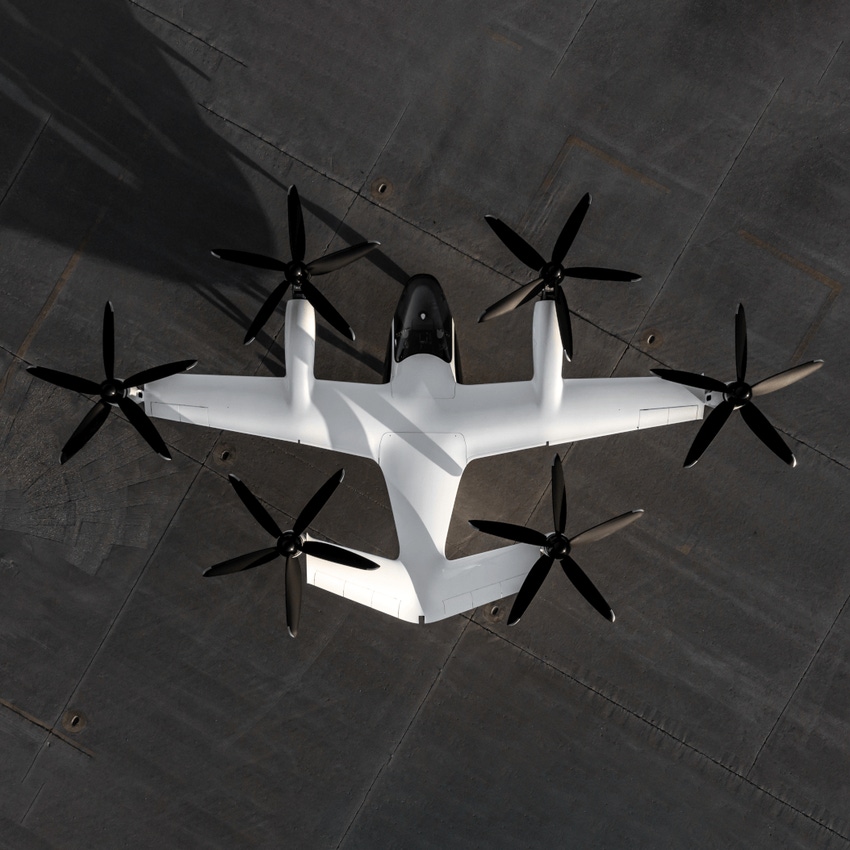Korean telcos' air taxi rivalry takes flight
The Korean government has set 2025 as the target starting data for commercially available urban air services.

South Korean telcos, so often the groundbreakers in telecoms, have found a fresh area of competition: air taxis.
SK Telecom CEO Ryu Young-sang has just declared the operator aims to have a commercial service in the air by 2025, according to a Korea Times report.
In a company blog, Ryu said: "UAM [urban air mobility] has been considered to become feasible by 2030 at the earliest, but innovative companies worldwide are shortening the period. SKT will lead the commercialization of UAM in Korean skies by 2025 and will offer autonomous services by 2030."
Figure 1:  SKT already has a commercial deal with California-based Joby Aviation to bring aerial ridesharing service to Korea.
SKT already has a commercial deal with California-based Joby Aviation to bring aerial ridesharing service to Korea.
(Source: Joby Aviation)
He's not alone in that ambition. The Korean government has also set 2025 as the target starting date for commercially available urban air services.
Earlier this year it launched the K-UAM Grand Challenge, a competition to test out Korean companies' safety and operational capabilities in urban air transport, with demonstration flights scheduled for next year.
SKT has entered the competition, as has its two rivals, KT Corp and LG Uplus, pitching the three telcos against each other as well as against Korea's aerospace industry heavyweights.
LG Uplus, the smallest operator, is teaming up with rideshare firm Kakao Mobility, oil company GS Caltex, airline Jeju Air, local drone firm Pablo Air, and the UK's Vertical Aerospace.
Lee Sang Yeob from LG Uplus said the aim was to prove that mobile technologies such as 5G "can supply high quality service from ground to air."
A new consortium
KT formed a consortium last November with partners including Hyundai Motor, which is one of a handful of Korean firms aiming to build urban mobility vehicles. KT's consortium also includes airline Korean Air and Incheon International Airport Corp.
On paper at least, SKT's team looks to be stronger than both of those groups.
For starters, it already has a commercial deal with one consortium member, California-based Joby Aviation, to bring an aerial ridesharing service to Korea.
NYSE-listed Joby, one of the world's most advanced eVTOL (electric vertical take-off and landing) manufacturers, in turn, has a manufacturing partnership with Toyota, which is also one of its investors.
Additionally, SKT brings along some of its own expertise in T Map, Korea's biggest mobility platform, a JV formed last year between SKT's mapping unit and Uber. Korean defense electronics firm Hanwha Systems and the state-run Korea Airports Corp. are also consortium partners.
Want to know more? Sign up to get our dedicated newsletters direct to your inbox.
Each of the telcos referenced above is aiming for a bigger, long-term prize than the initial public relations boost that comes with taking flight in Korea's aerial mobility market.
The bigger reward is a piece of the massive global business. Morgan Stanley's estimate of a $1 trillion market by 2040 is typical of the eye watering estimates being made.
Indeed, there's plenty to play for. Keep your head up: this aerial fight could be one to watch.
Related posts:
— Robert Clark, contributing editor, special to Light Reading
Read more about:
AsiaAbout the Author(s)
You May Also Like












